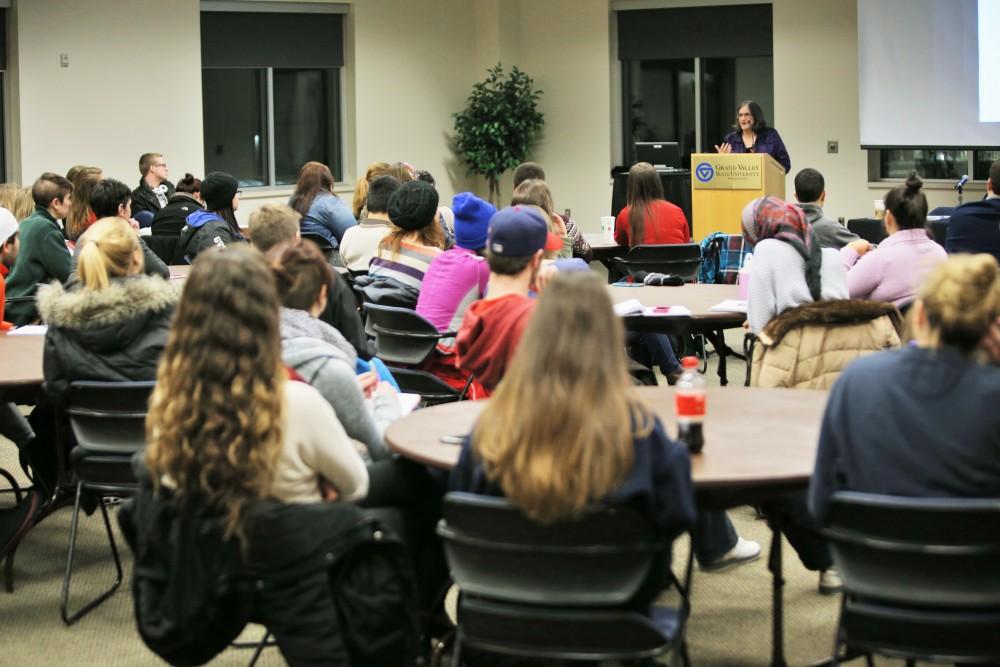Ferguson panel explores role of police brutality

GVL/Kevin Sielaff Ferguson Panel
Feb 16, 2015
The Office of Multicultural Affairs held a panel on Wednesday to discuss the role of police brutality in the cases of Michael Brown, Eric Garner, Trayvon Martin and other unarmed black men and women.
The event featured four panelists from a multitude of disciplines. The panelists emphasized that in order to understand the events that occurred in Ferguson, Mo., students and faculty need to understand the events from a variety of angles.
The history of police brutality, police training and the use of police force, how the grand jury system works and how the shootings fall within international frameworks all play a key role in understanding the issue.
Louis Moore, a history professor and coordinator of the African American Studies program, said one cannot look at the shootings in an isolated environment. Moore showed photographs of newspapers reporting on police brutality from the emancipation through the Michael Brown case.
“You can’t understand Trayvon Martin without understanding the long history of the criminalization of the black body,” Moore said.
He added that it is important to read about past events in order to understand how society got to this point – the Black Lives Matter movement is new, but the idea behind the movement has been around for a long time.
Police brutality has existed throughout the history of the United States. However, it’s important to understand how the police determine when force is appropriate.
This is what Brian Johnson, criminal justice professor, wanted the crowd to understand. Police must manage the level of resistance put up by the subject and the level of force needed to control that resistance.
An audience member asked Johnson about the large number of shots that Mike Brown received – if police officer’s do not intend to kill, then why fire so many bullets?
Johnson said officers have to stop aggressive subjects as fast as possible, so police must stop the vital life functions.
“What that means is that you need to shoot for the heart and the lungs, and you need to put as many holes in that person as possible,” Johnson said.
Though it may seem crass, police officers must make split-second decisions, Johnson said.
In the case of the Michael Brown shooting, a prosecutor presented evidence in front of a grand jury. Christine Yared, a lawyer and adjunct professor, said prosecutors are misusing the grand jury system.
Prosecutors are merely presenting all the gathered information to a grand jury and letting them make a decision, Yared said. With this method, prosecutors are using grand juries as a shield.
Where the truth comes out is in cross-examination, Yared said.
“If a prosecutor just puts someone in the stand and says ‘Tell your story, tell what happened,’ then you’re not going to get the essence of what happened,” Yared said.
Yared, Johnson and Moore showed an inward look at the issue.
David Alvarez, professor of English and an affiliate of GVSU’s Middle East Studies program, had a different view.
“Regarding the United States, and this is what’s going to come a bit harsh to some of you, as an imperialist state abroad that fosters systemic violence…largely against African Americans, but also against Latinos, Native Americans and undocumented immigrants,” Alvarez said.
A nation’s moral worth can be judged by how it treats its children, Alvarez said. He said a nation must also look out for the children in areas where it exerts power.
People must internationalize their knowledge, he said. By doing this, society can better prepare to discuss and solve issues.
Alvarez said one must look out for the people in their world by being active and getting involved in as many ways possible.

























